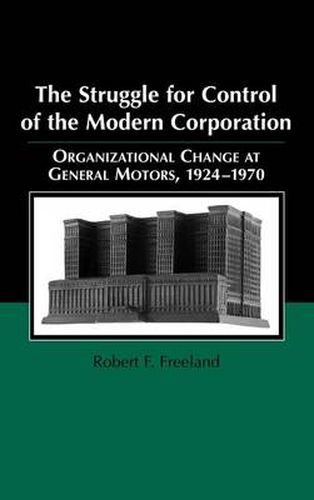Readings Newsletter
Become a Readings Member to make your shopping experience even easier.
Sign in or sign up for free!
You’re not far away from qualifying for FREE standard shipping within Australia
You’ve qualified for FREE standard shipping within Australia
The cart is loading…






Drawing on primary historical material, The Struggle for Control of the Modern Corporation provides a fascinating historical overview of decision making and political struggle within one of America’s largest and most important corporations. Robert Freeland examines the changes in General Motors’ organization between the years 1924 and 1970. He takes issue with the well-known argument of business historian Alfred Chandler and economist Oliver Wiliamson, who contend that GM’s multidivisional structure emerged and survived because it was more efficient than alternative forms of organization. The book illustrates that for most of its history, GM intentionally violated the fundamental axioms of efficient organization put forth by these analysts. Moreover, it was top management that advocated these changes. Owners vehemently opposed them, touching off a struggle over corporate organization inside GM that lasted for decades. Freeland uses the GM case to re-examine existing theories of corporate governance.
$9.00 standard shipping within Australia
FREE standard shipping within Australia for orders over $100.00
Express & International shipping calculated at checkout
Drawing on primary historical material, The Struggle for Control of the Modern Corporation provides a fascinating historical overview of decision making and political struggle within one of America’s largest and most important corporations. Robert Freeland examines the changes in General Motors’ organization between the years 1924 and 1970. He takes issue with the well-known argument of business historian Alfred Chandler and economist Oliver Wiliamson, who contend that GM’s multidivisional structure emerged and survived because it was more efficient than alternative forms of organization. The book illustrates that for most of its history, GM intentionally violated the fundamental axioms of efficient organization put forth by these analysts. Moreover, it was top management that advocated these changes. Owners vehemently opposed them, touching off a struggle over corporate organization inside GM that lasted for decades. Freeland uses the GM case to re-examine existing theories of corporate governance.